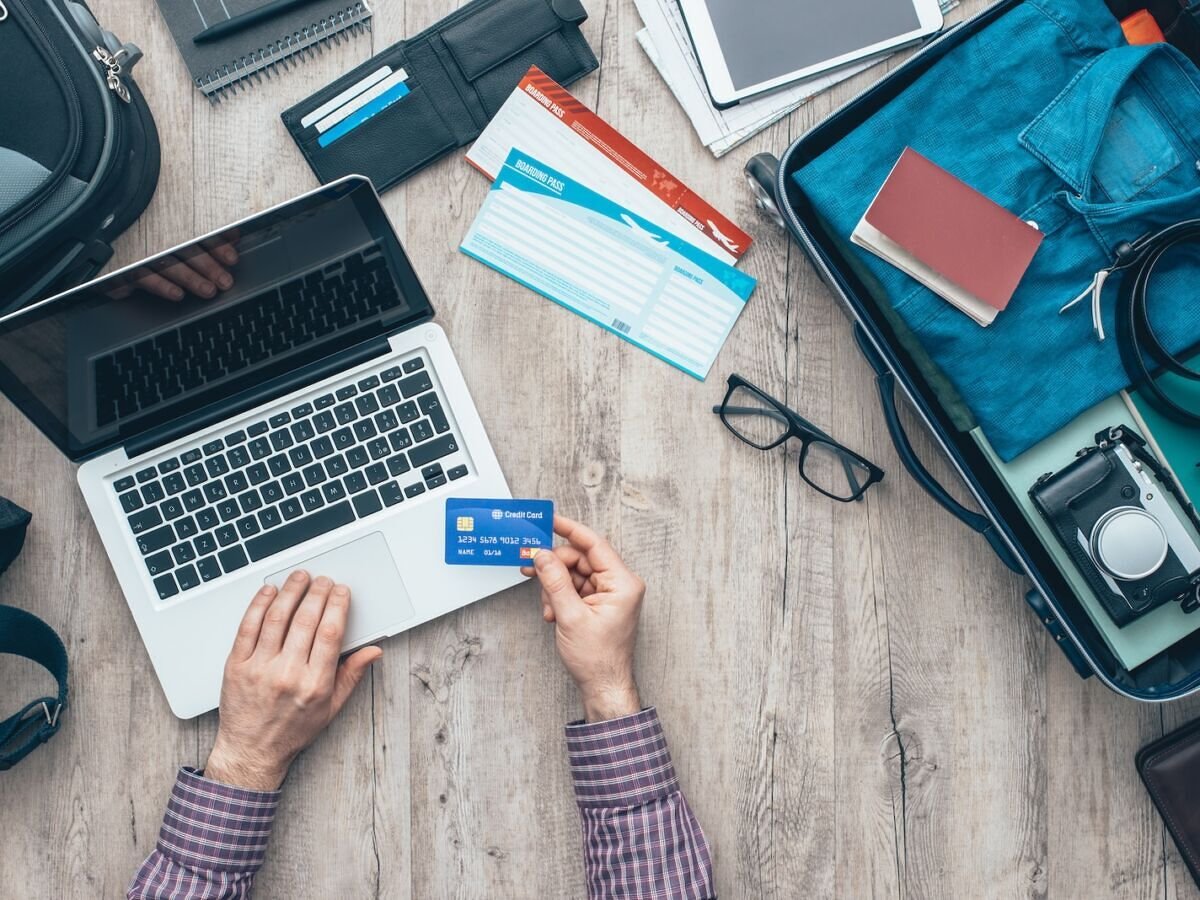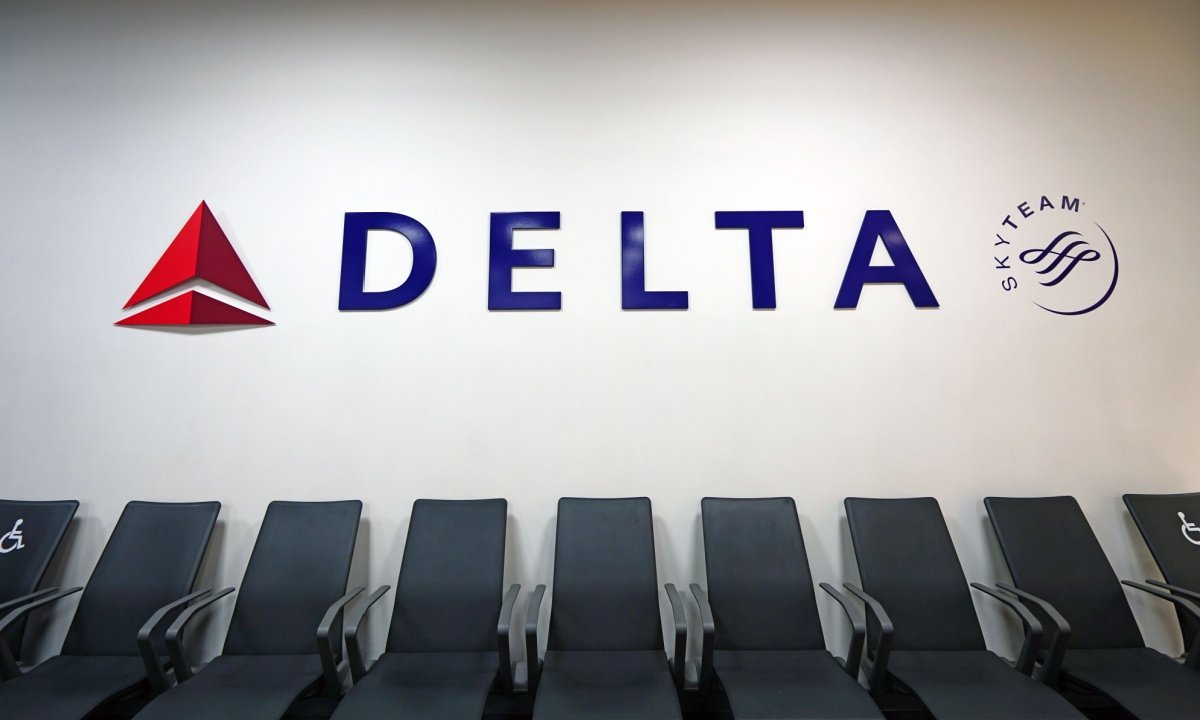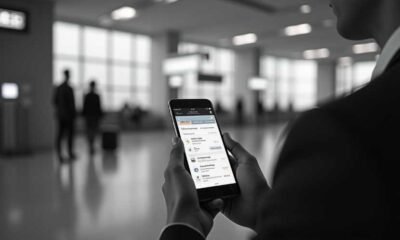AI in Travel
Rezcomm Maps the Future of AI in Travel

New animation brings Rezcomm’s AI roadmap to life, showing how airports and travel hubs can use automation, analytics, and frictionless access to transform operations and elevate the customer experience.
Rezcomm has launched a new animated video showcasing its advanced AI capabilities and vision for the future of travel. The video, titled “Rezcomm AI: Smarter Journeys, Seamless Experiences,” brings to life how predictive automation, dynamic pricing, and barrier-free access can help airports and travel hubs deliver frictionless customer experiences and maximize revenue.
As creators of the plug-and-play marketplace trusted by airports, venues, and travel hubs globally, Rezcomm continues to lead in AI-powered innovation.
The launch builds on Rezcomm’s story, “Advanced AI and Analytics Set to Change the Future of Aviation,” which introduced the industry to Rezcomm’s generative AI chatbot, sentiment analytics, and privacy-first personalization. This release demonstrates how those capabilities have matured into a cohesive intelligence layer that not only anticipates demand but will soon act autonomously.
Watch the animation:
Key Highlights
- Predictive intelligence: AI models forecast demand and recommend actions in real time.
- Operational efficiency: Dynamic pricing, capacity management, and automated communications – all fully integrated.
- Frictionless access: Barrier-free entry through AI-enabled cameras, QR codes, and smart rules.
- Built for scale: Secure, cloud-based infrastructure designed for high-volume environments.
Leadership Commentary
Marc Ive, Chief Executive Officer, Rezcomm
“We promised AI and analytics would reshape aviation – this shows that reality taking shape. AI should remain invisible to travelers but deliver real impact for operators: higher revenue, fewer headaches, better experiences.”
Victoria Wallace, Chief Digital Officer, Rezcomm
“The next shift in digital isn’t more tools – it’s smarter coordination. AI allows us to unify fragmented systems, act on data instantly, and drive meaningful change in how guests experience travel. It’s about being responsive, predictive, and future-ready – all at once.”
Alwyn J Veliyeth, Chief Technology Officer, Rezcomm
“We’ve embedded AI across every service. The result is a secure, cohesive architecture that monitors 24/7, predicts what’s next, and will soon act autonomously – without adding complexity or risk.”
About Rezcomm
Your customers expect joined-up services. With Rezcomm Marketplace, your platform delivers exactly that – seamless, personalized experiences across digital and physical touchpoints.
Originally built for airports, Rezcomm now powers travel hubs of all kinds. Our modular, AI-driven platform combines ecommerce, CRM, reservations, BI, and marketing. By giving organizations full data ownership and rich predictive analytics, Rezcomm helps them personalize every interaction, automate operations, and unlock new revenue at scale.
Rezcomm supports clients globally and holds industry-leading certifications, including PCI DSS Level 1 Version 4.0 and Cyber Essentials Plus. Learn more at rezcomm.com.
AI in Travel
Tourist Scam Warning: AI Celebrity Endorsements Fool Istanbul Visitors, Here Is What All You Need To Know

Wednesday, July 23, 2025
On vacations abroad, particularly in pulsating cities as Istanbul is, tourists rely on visual cues to decide about their dining options. But one family of unsuspecting tourists were recently given a quite different story when they visited the Turkish city of Istanbul, after being pranked by an advanced AI at a local kebab shop. When looking for a place to eat, they came across a garish digital advertising signboard with hyper realistic pictures of people like David Beckham, Dwayne Johnson, Mark Zuckerberg and rap artist Snoop Dogg cheerfully promoting the modest eating joint.
At first excited at the prospect of eating in a place that they had heard international stars had patronized, the prospect became suspicious. On close examination, the visitors discovered a tiny disclaimer tag, “Imagined by AI,” that disclosed these endorsements as being digitally invented and completely fictional.
What this incident suggests is a growing risk for a common concern that affects tourists around the world: advanced AI solutions can now develop falsified and highly believable images, endorsements, and the like and can sway travelers’ decision-making processes in the worst ways. When scams are well executed like this, they mislead victims into thinking they are reputable businesses, thereby harming victims’ trust in legitimate businesses and negatively impacting a legitimate business’ reputation.
The Expanding Impact of AI-Generated Scams on Travel
AI-generated deception isn’t limited to celebrity endorsements. Travelers worldwide report increasing encounters with sophisticated scams powered by artificial intelligence. Government tourism advisory boards in Australia, the UK, and the USA now actively warn travelers about AI-crafted online scams targeting vacationers. Common tactics include fake hotel booking websites, misleading travel deals offered by automated chatbots, and artificially-generated hotel or restaurant reviews.
One alarming case from Vietnam involved tourists arriving at a supposed eco-friendly lodge advertised online, only to find a basic shed, not the lush accommodations digitally depicted. In Bali, Australian travelers flagged villa advertisements featuring surreal architecture and bizarre visual inaccuracies—clear indicators of AI manipulation.
For the travel industry, particularly business travelers, the growing prevalence of AI scams poses substantial risks. Businesses that depend on travel agencies and online reviews could inadvertently rely on deceptive information, causing disruptions, financial losses, and safety concerns.
Official Travel Safety Advice from Government Sources
Authorities, including the U.S. State Department and Australia’s Smartraveller program, strongly recommend travelers take additional precautions to avoid AI scams:
- Always verify travel deals and bookings directly through official hotel and airline websites rather than relying solely on third-party sources or promotional emails.
- Cross-reference reviews across multiple reputable platforms to confirm authenticity. Independent review forums and trusted social media sources are recommended.
- Avoid engaging with suspicious chatbots offering overly attractive deals; these are often designed solely to obtain sensitive financial information.
- Never provide personal or financial details via unsolicited emails or messages.
Quick Tips for Travelers and Business Professionals
To navigate the complex digital landscape safely, travelers—especially business professionals—should:
- Inspect images closely for anomalies or unnatural features, like distorted fingers, irregular backgrounds, or odd reflections.
- Confirm accommodations directly by contacting the property to verify all amenities and ensure images match real offerings.
- Report suspicious activity to local tourism boards or authorities promptly to assist others in avoiding similar scams.
Additional Information for Istanbul Tourists
For travelers planning to explore Istanbul, it’s important to note that authentic restaurants and popular eateries rarely rely solely on celebrity endorsements. Instead, genuine local hotspots often have numerous credible reviews across platforms like Tripadvisor, Google Maps, or even recommendations from locals.
Tourists should consider checking with the official tourism websites of Istanbul and Turkey’s Ministry of Culture and Tourism to access verified lists of reputable businesses and attractions. Travelers can also visit visitor centers to receive trustworthy information and prevent falling victim to misleading advertisements.
Future Implications and Staying Vigilant
And as AI keeps gaining ground, the number and sophistication of digital deceptions aimed at tourists and business travelers is likely to rise. It is important for leisure and business travellers to stay aware and to stay safe, and increasingly that means improving digital reading to spot and avoid those threats.
For travel and tourism businesses, those that educate their employees about digital scams will be well placed to continue work productively and in a secure manner. Hotels and restaurants need to play an active role in having transparent online teaching, positive reputation based on verified customer reviews and real interactions, thus building trust and minimizing the negative impact on the trust caused by the AI-driven fraud.
At the end of the day, however, surviving in a digital world comes down to being sceptical when you see something too good to be true, too visually-impressive to seem real, or just something you never thought you’d find offered for “free.” A fight over an Istanbul kebab shop is a timely reminder that in the age of artificial intelligence, travelers need to not only read the fine print, but also look closely at each pixel.
Tags: AI deepfake, AI scams, AI-generated images, business travel impact, business traveler tips, celebrity endorsements, digital safety, fake reviews, Istanbul, kebab shop, tourism advice, tourist scams, Travel advisory, travel alerts, travel fraud, travel safety tips, travel scams, Travel Security, Turkey
AI in Travel
Is Delta Using AI to Charge You More? What We Know So Far.

According to company leadership, Delta is now using AI to set proposed fares for passengers on an individual basis. It says the system is more efficient, but definitely more profitable, than older models. As of now, only about 3 percent of domestic fares are being sold using the new AI model, though Delta President Glen Hauenstein told investors earlier this month that the goal is to raise that to 20 percent by the end of the year.
It’s a change many consumer watchdog groups and even some lawmakers are calling discriminatory, invasive, and potentially predatory to consumers.
What’s different about AI-driven pricing?
With both dynamic and AI-assisted pricing, two passengers in seats next to each other may have paid drastically different fares. Photo: DC Studio/Shutterstock
It’s well known that the aviation industry has used dynamic pricing for decades. In dynamic pricing models, fares can change throughout the day based on factors like time of booking, how much demand there is for the route, seat availability, and the day of the week. The systems are rule-based and somewhat predictable, loosely based on the idea that prices go up when demand increases and drop when fewer people are interested. The rate is generally the same for each person, provided they’re booking the same ticket at the same time.
Delta’s new AI model is a drastic change in that it’s personalized (or some might say “targeted”) to each potential flyer. Instead of calculating prices based on broad traveler trends, the AI estimates an individual’s willingness to pay in real time. That means that two buyers searching for the same flight at the same time could be offered totally different prices based on undisclosed information and factors an AI can surmise about that person. The technology is built by a company called Fetcherr, which says its system calculates individualized pricing based on millions of data points, including “factors like customer lifetime value, past purchase behaviors, and the real‑time context of each booking inquiry.”
In a statement to Business Insider, Delta denied it would use any personal information to influence pricing, including browsing history, financial data, or location data. However, as of now, Delta has declined to specify what data points the AI does use.
“The biggest shift is that AI pricing goes beyond the traditional supply-and-demand model and tailors prices to each individual in real time,” Jesse Neugarten, founder and CEO of Dollar Flight Club, tells Matador Network. He says that in the past, it was route-based factors that determined the cost. “With AI, the algorithm can ingest tons of personal signals like your browsing history, device type, even estimated income level and spit out a price just for you.”
Which could lead to higher prices for flyers overall.
“It’s no longer just ‘prices are going up because a flight is filling up,’” Neugarten says. “Now, it’s ‘prices are going up for you because we think you’ll still pay it.’”
AI pricing is already facing pushback from lawmakers
Three Democratic senators (Ruben Gallego of Arizona, Richard Blumenthal of Connecticut, and Mark Warner of Virginia), already sent a warning to the airline, suggesting that AI pricing may be “surveillance-based pricing” — a practice considered predatory to consumers. The senators asked Delta to respond by August 4 with details about what data the AI uses, how the algorithm is trained, and how many passengers have been captured using AI pricing. What may come from the conversation remains to be seen, but it could result in a larger conversation (and potentially regulation) on how AI can be used for consumer pricing.
Consumer advocacy groups echoed the senators’ concerns. “They’re trying to see into people’s heads to figure out how much they’re willing to pay,” according to Justin Kloczko, a reporter with Consumer Watchdog. “It’s hacking our brains for maximum profit.”
In addition to the proposed unfairness of the model, another concern is that the AI pricing tool will create financial penalties for infrequent travelers in an attempt to reward more frequent fliers. That could translate to more expensive fares for lower-income travelers. Studies published in early 2025 across all industries (not just airlines) showed that lower income buyers tend to see the biggest increases in pricing under AI-driven pricing models.
“Legality depends on how the data is sourced and used, but there’s no clear law that says an airline can’t offer a different price to different people based on personal data,” Neugarten says. “Fairness is a different story. If two people are shown two prices for the same seat based solely on how much the system thinks they’re willing to pay, that erodes consumer trust fast. Most travelers have no idea this is happening behind the scenes, which is part of the problem.”
Conversely, Delta says the model is really nothing new. A Delta spokesperson told Boston 25 News that AI pricing technology is just another way of doing what it has been doing for years: changing airfare prices based on demand and availability, and using AI simply “streamlines” that process. And according to Delta President Hauenstein, it’s been profitable, telling investors on the same call that it’s resulting in “amazingly favorable unit revenues.” In other words, consumers are paying more, and the airline is making more money.
Neugarten says while it is technically just an extension of what Delta has already been doing, it’s a big one. “This is the first time we’re seeing personalized pricing on this level, and at machine speed.” He thinks it’s a major shift, akin to flight prices becoming more like an online auction than a clear transaction. “Travelers who aren’t aware of this trend risk overpaying without even realizing it,” he adds.
How to beat the algorithm (maybe)
Photo: Funstock/Shutterstock
Because Delta’s AI pricing model is opaque, with the airline intentionally not sharing what factors determine a price, there’s no foolproof way for travelers to avoid AI pricing. But based on what’s known about similar systems, there are a few educated guesses you can make based on what may be an influencing factor. None of these are guaranteed to work, but in general, taking steps to protect your privacy online isn’t a bad idea anyway.
Shop in incognito mode: AI-powered pricing tools probably don’t use cookies, but using a standard browser may give away information like repeat search behavior, or what website you were just on. Using incognito mode, or switching between unlinked devices for different searches, may help minimize how much data Delta can see.
Delay or rush your airfare purchase: Some AI models consider urgency as a factor. So if you’re repeatedly checking the cost of a route over and over, or searching for a very last-minute ticket, the system may think you’re desperate, and try to charge you more. Booking early could help. However, booking a seat at the very last minute could work, too, as the model may lower the price if it thinks you’re undecided on traveling.
Use a VPN to hide your location: Delta says it doesn’t use geolocation for AI pricing, but the broader travel industry often does. Changing your virtual location with a VPN may yield different fares, particularly on international routes. It may also stop programs from being able to make assumptions about your income or ability to pay based on your residential zip code.
Clear your cache and history: Again, Delta says it doesn’t use personal browsing behavior. But just in case other sites do, clearing your saved information and browsing history can reduce the risk of AI systems being able to recognize patterns it can use to adjust the price.
Use a different device than your daily phone or computer: “Booking on a lower-end Android phone may get a different result than a MacBook Pro,” Neugarten says Neugarten.
Change your profile or loyalty status: AI pricing models may reward frequent travelers. However, there’s also a chance it could interpret loyalty status as a sign that you’re willing to pay more to fly with a certain airline. Searching while logged out, as a guest, or on a brand new profile could help you avoid being classified as potential higher paying customer.
AI in Travel
Delta Air Lines Tests AI-Powered Personalized Pricing

Delta Air Lines is testing a new artificial intelligence (AI) pricing system that tailors fares to individual customers, a move that could reshape how airline tickets are sold and priced.
-

 Brand Stories2 days ago
Brand Stories2 days agoBloom Hotels: A Modern Vision of Hospitality Redefining Travel
-

 Brand Stories23 hours ago
Brand Stories23 hours agoOlive Living: India’s Intelligent, Community-Centric Hospitality Powerhouse
-

 Destinations & Things To Do3 days ago
Destinations & Things To Do3 days agoUntouched Destinations: Stunning Hidden Gems You Must Visit
-

 AI in Travel3 days ago
AI in Travel3 days agoAI Travel Revolution: Must-Have Guide to the Best Experience
-

 Brand Stories3 weeks ago
Brand Stories3 weeks agoVoice AI Startup ElevenLabs Plans to Add Hubs Around the World
-

 Brand Stories2 weeks ago
Brand Stories2 weeks agoHow Elon Musk’s rogue Grok chatbot became a cautionary AI tale
-

 Asia Travel Pulse3 weeks ago
Asia Travel Pulse3 weeks agoLooking For Adventure In Asia? Here Are 7 Epic Destinations You Need To Experience At Least Once – Zee News
-

 AI in Travel3 weeks ago
AI in Travel3 weeks ago‘Will AI take my job?’ A trip to a Beijing fortune-telling bar to see what lies ahead | China
-

 Brand Stories3 weeks ago
Brand Stories3 weeks agoChatGPT — the last of the great romantics
-

 The Travel Revolution of Our Era1 month ago
The Travel Revolution of Our Era1 month agoCheQin.ai Redefines Hotel Booking with Zero-Commission Model











You must be logged in to post a comment Login